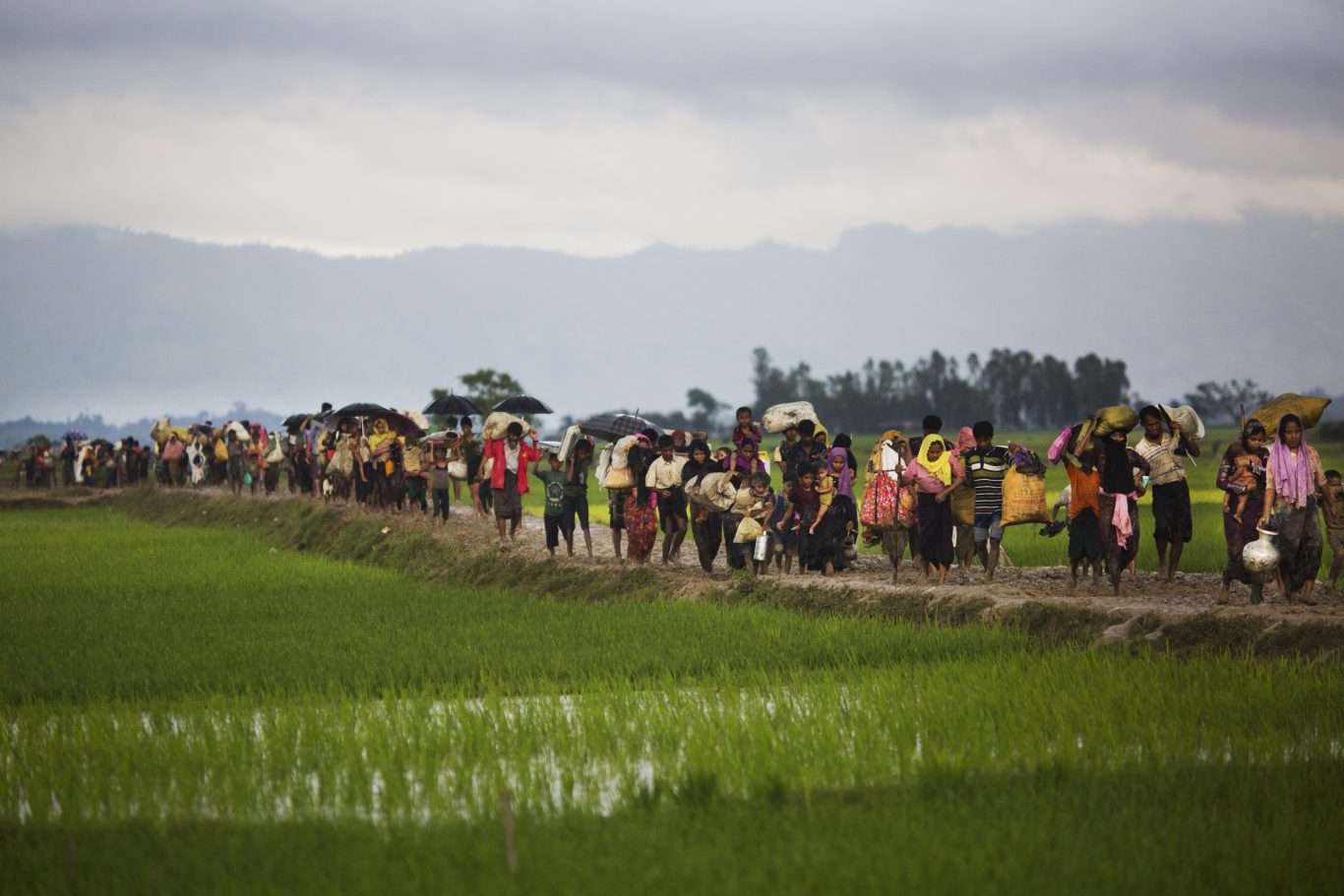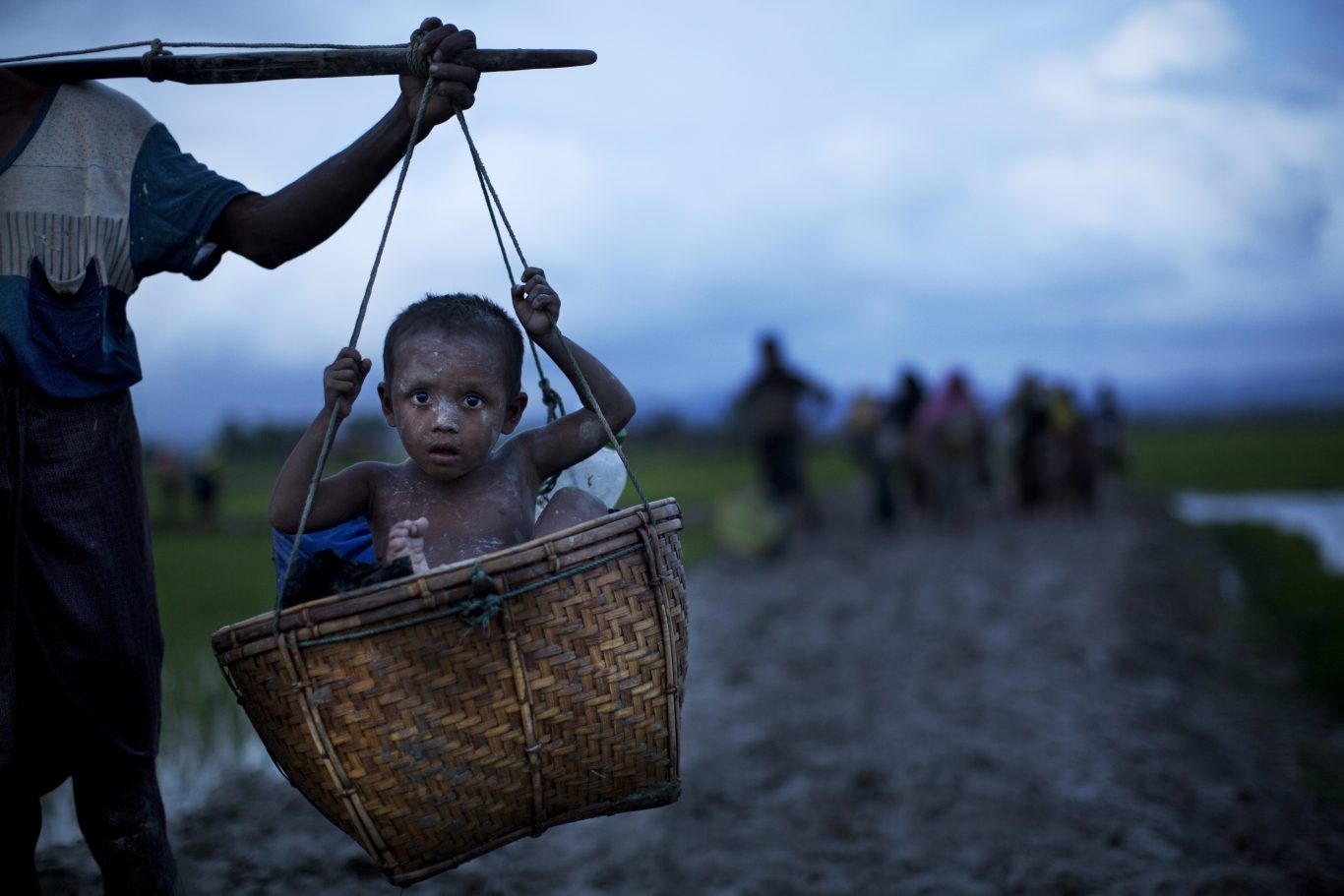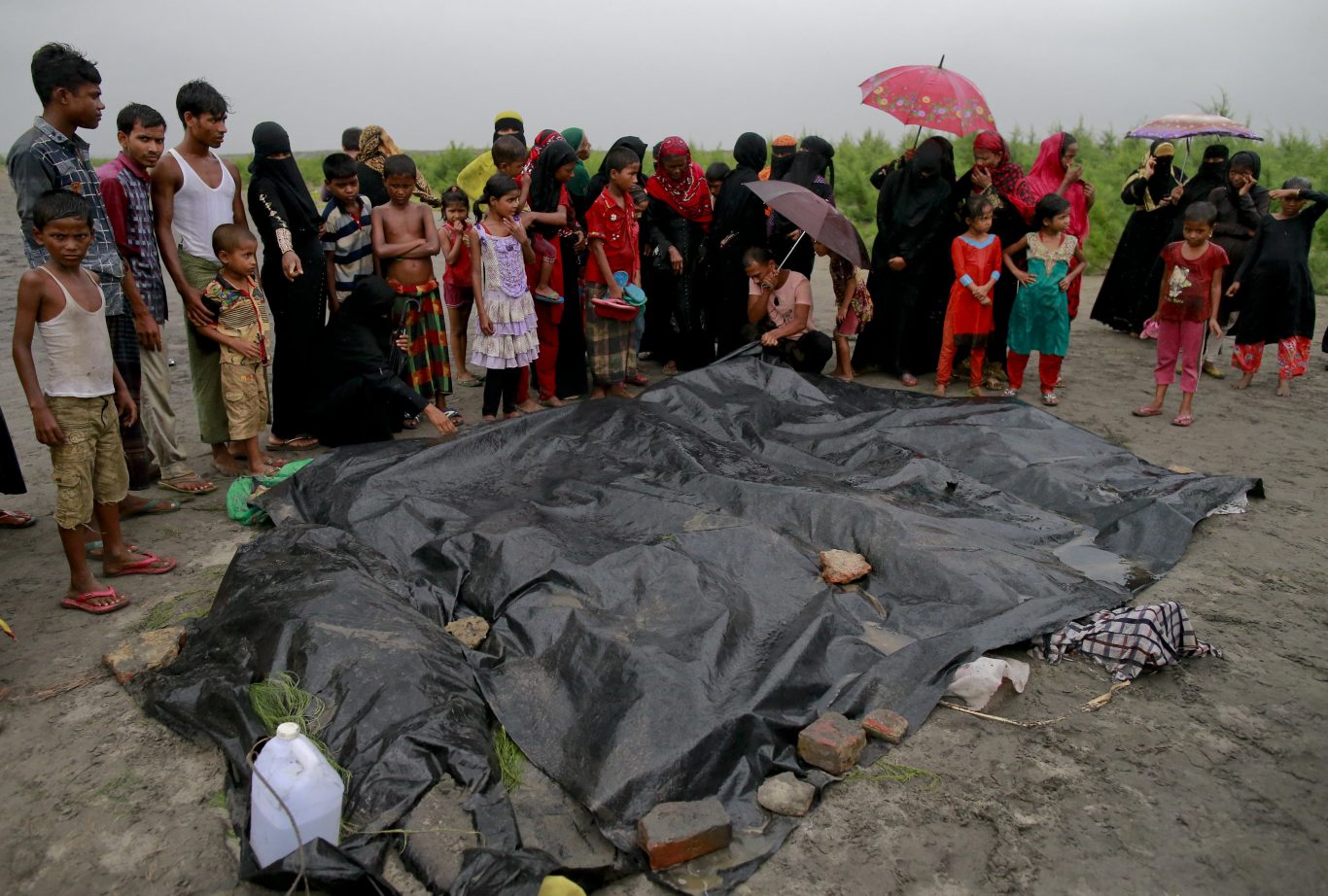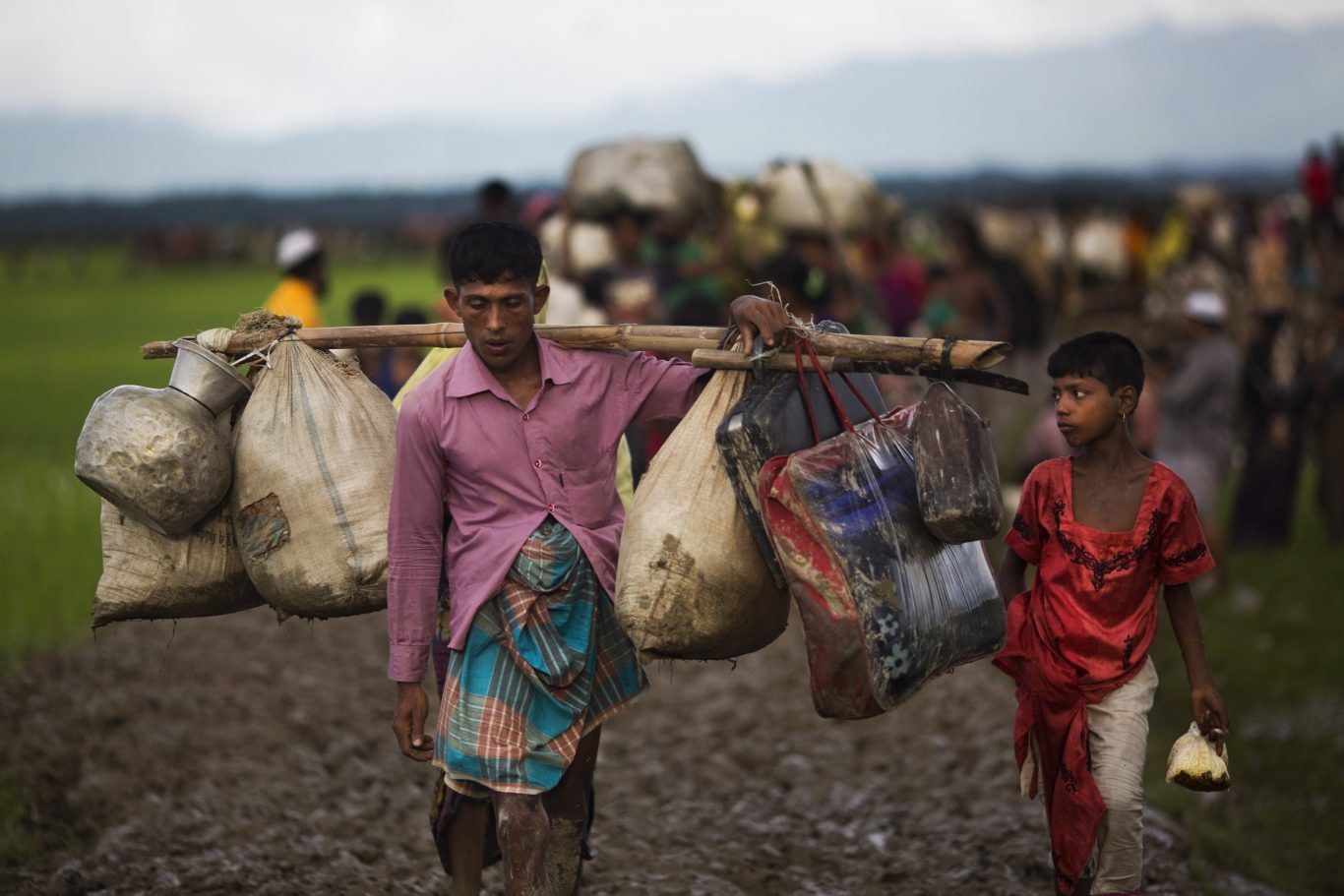Almost 400 people died in recent violence in the western state of Rakhine triggered by attacks on security forces by insurgents from the Rohingya ethnic minority, Burma’s military has said.
Both sides exchanged accusations of atrocities as thousands of Rohingya fled across the border to Bangladesh.
The death toll, posted on the Facebook page of the country’s military commander, is a sharp increase over the previously reported number of just over 100.

The statement said all but 29 of the 399 dead were insurgents, whom it described as terrorists. It said there had been 90 armed clashes, including an initial 30 attacks by insurgents on August 25, making the combat more extensive than previously announced.
The army, responding to the August 25 attacks, launched what it called clearance operations against the insurgents.
Advocates for the Rohingya, an oppressed Muslim minority in overwhelmingly Buddhist Burma, said security forces and vigilantes attacked and burned Rohingya villages, shooting civilians and causing others to flee.

Hundreds of civilians were killed, they said. They have posted photos, videos and details on social media that they say serve as evidence. The government said it is the insurgents who have been burning homes and killing members of the Buddhist ethnic Rakhine community.
Longstanding tension between the Rohingya Muslims and ethnic Rakhine Buddhists erupted in bloody rioting in 2012, forcing more than 100,000 Rohingya into displacement camps where many still live.
The insurgent group that claimed responsibility for last week’s attacks, the Arakan Rohingya Salvation Army (ARSA), said it acted to protect Rohingya communities.

It is nearly impossible to verify information issued by either the government or Rohingya sympathisers because the government has barred most journalists from the area, except on limited official guided tours.
A human rights group, Fortify Rights, said that witnesses who escaped have supported accusations by Rohingya advocates that government security personnel and civilian vigilantes “committed mass killings of Rohingya Muslim men, women and children in Chut Pyin village, Rathedaung township, on August 27”.
“Survivors and eyewitnesses from Chut Pyin told Fortify Rights that soldiers and armed residents burned every house in the village,” the group said in a statement.

The violence has driven many Rohingya to seek shelter in Bangladesh. Estimates from local and police officials, intelligence sources and Rohingya leaders suggest at least 40,000 have crossed the border.
In the first six days after the August 25 attacks, the International Organisation for Migration said at least 18,000 Rohingya arrived in Bangladesh.
The exodus continued on Friday. Bangladeshi border guards have tried to keep them out, but usually relent when pressured, and thousands could be seen making their way across muddy rice fields.
Young people helped carry the elderly, some on makeshift stretchers, and children carried newborns. Some, carrying bundles of clothes, cooking utensils and small solar panels, said they had walked at least three days to get to the border.






